A Year in Review: The Best Films of 2023
A countdown of my personal favorites of the past year!
Happy New Year!
As is tradition for Ada’s Film Depository, the first day of the new year brings a list of my favorite films from the previous 12 months. 2023 was a big year for me as a writer, as I moved across the country, began writing for an independent publication, published some of my most successful pieces to date, more than doubled my subscriber base, and attended my first press screenings. I want to thank you all for continuing to read and donate to my work this year, as your support is greatly appreciated.
I was lucky enough to catch more movies this year than any other, both in theaters and streaming, but as always, there were far more films I wanted to see than I had time for. The films I missed include The Zone of Interest, American Fiction, Fallen Leaves, The Iron Claw and All of Us Strangers. I hope I’ll get the chance to watch and review these films soon, and if they make their way onto this list, I will make note in their individual reviews and update their placement accordingly in my Letterboxd list. Additionally, a few films on this list and in the honorable mentions section have yet to receive their own individual reviews, so keep an eye out for those in the following month.
Lastly, there are always more noteworthy films than there are spots on this list, many of which deserve recognition. Honorable mentions for 2023 include Theater Camp, Beau is Afraid, Spider-Man: Across the Spider-Verse, Dream Scenario, The Boy and the Heron, The Holdovers, Priscilla, and Godzilla Minus One. Be certain to check out these films as well, in addition to the following ten movies.
10. A Thousand and One - dir. A.V. Rockwell
Writer/director A.V. Rockwell’s feature debut documents a relationship between a mother and son, reunited after being torn apart by incarceration, and forced to hide a deep secret at the center of their lives. While Teyana Taylor and Josiah Cross deliver intricate and devastating performances at the heart of the film, A Thousand and One defines their relationship in the context of their changing environment and by the policies that build and tear down the walls of their home in Harlem. The inevitable stumbles that come from a debut feature are overshadowed by the raw urgency of the examination of the circumstances and systems that failed its subjects.
9. Passages - dir. Ira Sachs
Passages is a critique of its own medium, as it follows a selfish director puppeteering the people around him with the same authority he has on set. He approaches his personal relationships with the same intensity he applies to his professional relationships, acting as though the success of his work entitles him to dictate the nuances of real interaction. But without a script guiding him, he begins to ruin all of his relationships, and the domineering obsessiveness that initially brought him reverence eventually destroys all he has. Though skeletal in structure, the simple beauty of Passages provides a thoughtful examination of the losses that come from the deceptive comfort of control. Full review coming soon.
8. Poor Things - dir. Yorgos Lanthimos
Poor Things takes Yorgos Lanthimos’s deadpan and absurdist style in a new direction, examining a woman reborn from tragedy exploring the world anew, untethered from the strict societal functions that resulted in her earlier demise. The film presents a broad metaphor for self-actualization, exploring acute awareness of one’s body and the liberation that comes from unapologetic curiosity and optimism in one’s autonomy. Check out my full review here.
7. Bottoms - dir. Emma Seligman
Director Emma Seligman’s excruciating approach to relatability solidifies Bottoms as one of the best films of the year and a perfect addition to the pantheon of teen cinema. The raunchy sex comedy draws in its audience with contemporary cultural touchstones and then tears them apart from the inside out with provocative humor and shocking precision, using relatability to generate discomfort rather than affirmation. Supported by an intoxicatingly compatible ensemble cast, Bottoms expertly dissects the tropes of teen cinema, heightening them to absurdity while stripping them down to acknowledge the truths at their core. Check out my full review here.
6. Asteroid City - dir. Wes Anderson
After years of finding myself unsatisfied with Wes Anderson’s creative output, Asteroid City reminded me of why I grew to love his films in the first place. With labyrinthine narrative overlap, a nauseating color grade, and overpacked visual tableaus, Anderson heightens the artificiality of his own style to such an extreme that it collapses in on itself. This deconstruction creates a self-reflective critique of his own work and addresses the reductive oversimplification of his style in mainstream culture. Asteroid City uses the presence of the supernatural to examine the confluence of the artistic and the scientific, two opposing forces in conflict, and finds solace in the unknown. Check out my full review here.
(Bonus shoutout to The Ratcatcher and The Swan, two fantastic shorts that featured in Wes Anderson’s Roald Dahl film series that released on Netflix this year.)
5. Past Lives - dir. Celine Song
Past Lives may be a love story, but it's not a romance. As the film follows two childhood best friends who have kindled and rekindled relationships separated by long stretches, it explores the potential for romance, but Past Lives actually ruminates on the grief and gratitude that come from possibility. Every question of what could have been is its own life -- some of them pass us by, some of them we settle into, and all of them define future possibilities. “What if?” and “what was” create both intimacy and distance, and recognizing the necessary change that comes with each acceptance or dismissal of possibility also requires a recognition of inevitable mourning. Who, where, and what you are meant to be is the sum of your past, present, and potential selves, and all the lives you could have lived. Full review coming soon.
4. May December - dir. Todd Haynes
Through a blend of irony and sincerity, May December considers how exploitation is further exploited by a leering public who disguise obsessive indulgence as genuine concern. The film dissects how the cheap voyeurism of tabloid culture perpetuates a cycle which replicates and revives trauma, and how maintaining an image for public consumption results in a pantomime of normalcy. Helmed by three incredible performances, May December is a disturbing portrait of a precarious relationship predicated on abuse and sustained in an illusion of sanctity that shatters under the weight of inquisition. Check out my full review here.
3. Rye Lane - dir. Raine Allen-Miller
By reinterpreting the rom-com through a confluence of genre cliches and idiosyncratic stylistic direction, Rye Lane is as much a love letter to the community of South London as it is a romance between two hurting strangers. Through stunning visual dioramas and wide fish-eye angles, director Raine Allen-Miller builds a charming environment of details and nuances, embedding the melodies of a neighborhood in her film. Though Rye Lane is a small film, its stylization emphasizes the individual and collective stories that construct a charismatic community, providing a rejuvenating and refreshingly human context for a vibrant love story. Check out my full review here.
2. Killers of the Flower Moon - dir. Martin Scorsese
Killers of the Flower Moon transforms the melancholy of Scorsese’s recent films into anger and mourning. While his early work focused on the life that power grants, this film is far more concerned with the life that it takes, confronting the asymmetric structure at the core of the search for American capital. Killers of the Flower Moon documents murder in the Osage community primarily through the eyes of a perpetrator, therefore challenging public complacency about the crimes that constitute American history. Elevated by a best-of-all-time performance from Lily Gladstone, Killers of the Flower Moon reflects on the role of American storytellers in sanctioning the repetition of tragedies by failing to acknowledge the entirety of truth. Check out my full review here.
1. Anatomy of a Fall - dir. Justine Triet
Like TÁR last year, my favorite film of 2023 is one that succeeds because of its narrative and moral ambiguity. Anatomy of a Fall is a clinical dissection of the circumstances of a death that transforms into intense scrutiny of scrutiny itself. The case unfolds just as it would in the eyes of a juror, presenting the audience with ambiguous images manipulated by the subjectivity of prosecutors and defendants. Through this legal process, we scrutinize the nuances of reality in an attempt to shape an easy answer, but our ability to delineate good from evil is limited by a system that is blind to the fluidity of the human condition. Anatomy of a Fall is less concerned with unearthing the truth than it is in holding a mirror up to our own voyeurism, forcing us to recognize that our scrutiny does not uncover evil; rather, it creates it. C’est magnifique! Check out my full review here.
That’s all for my year in review. Thank you to everyone who contributed to my writing in any way this year -- have a safe and healthy new year, and here’s to a great 2024!

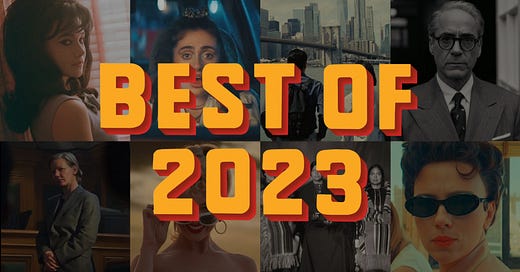



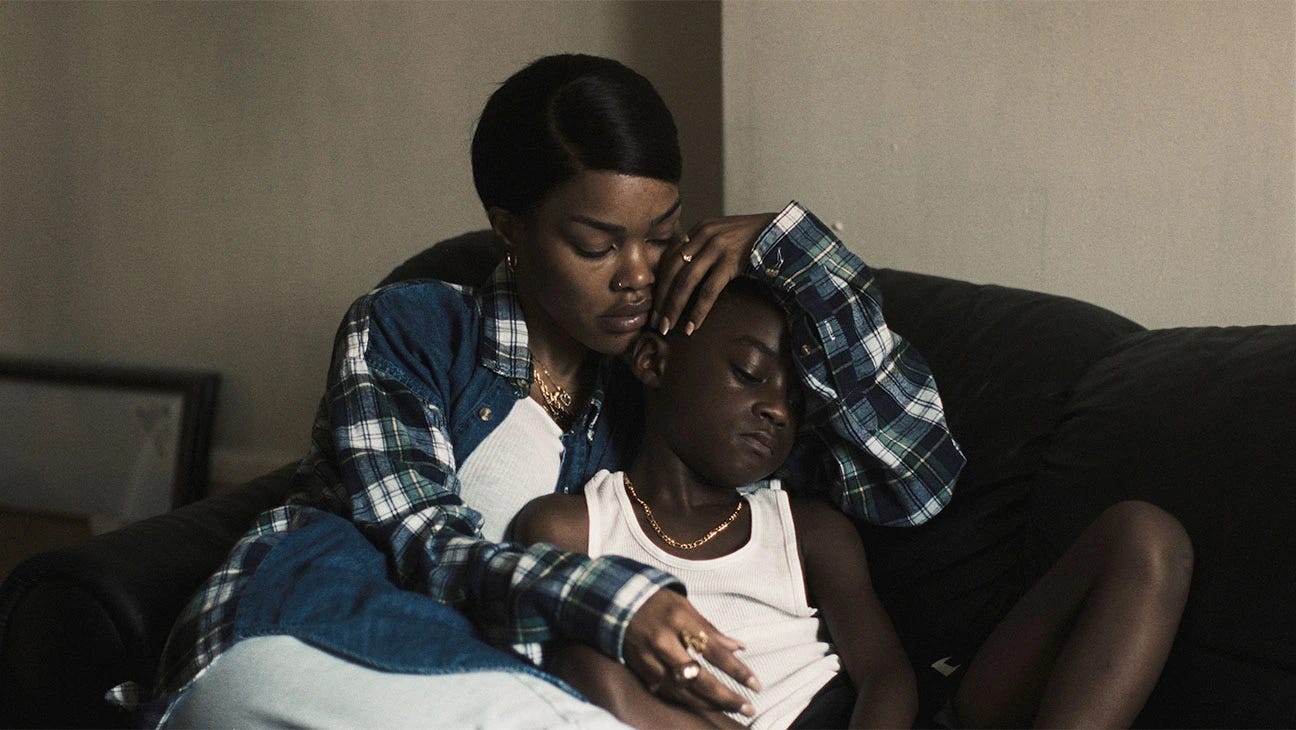

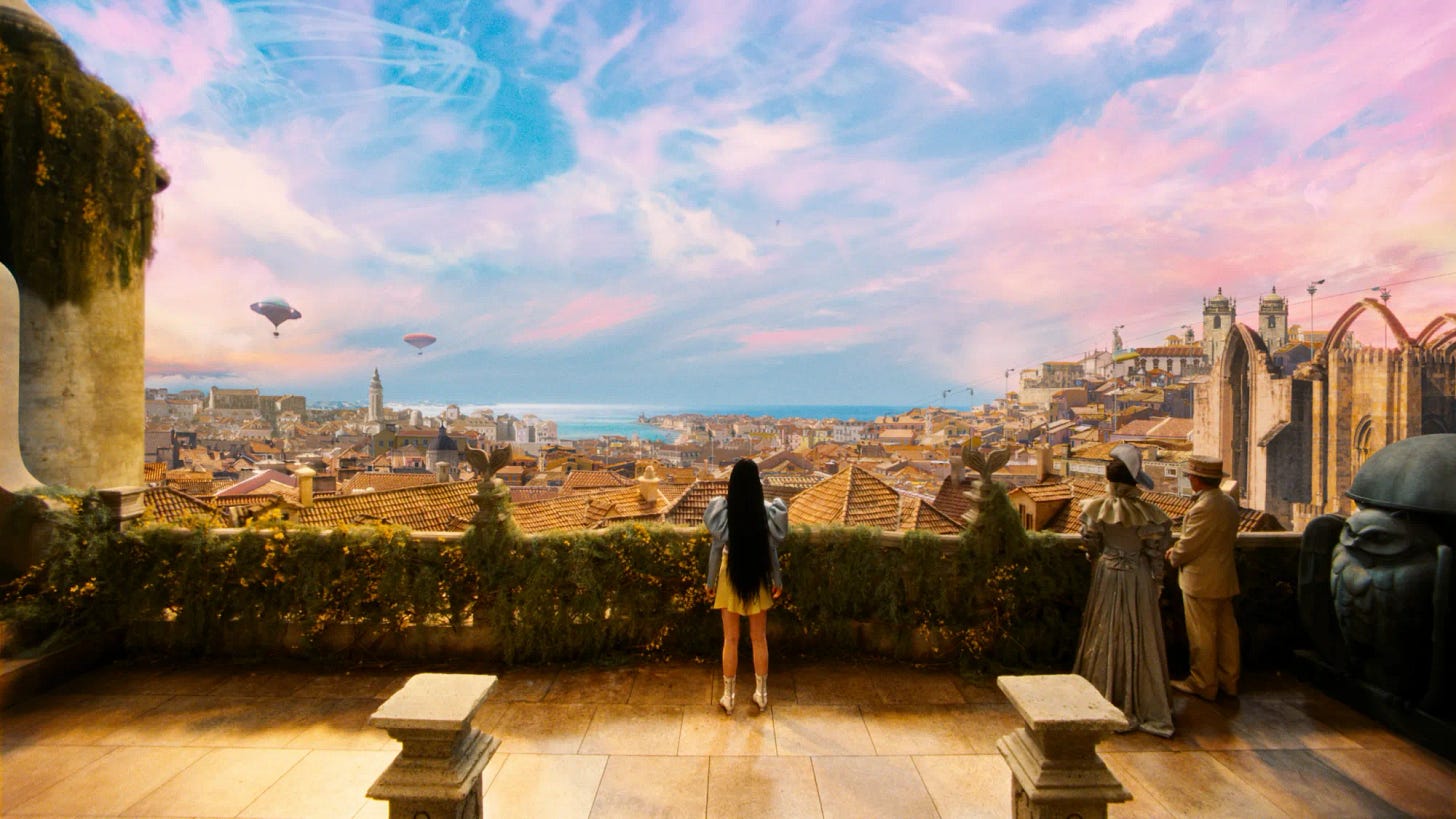
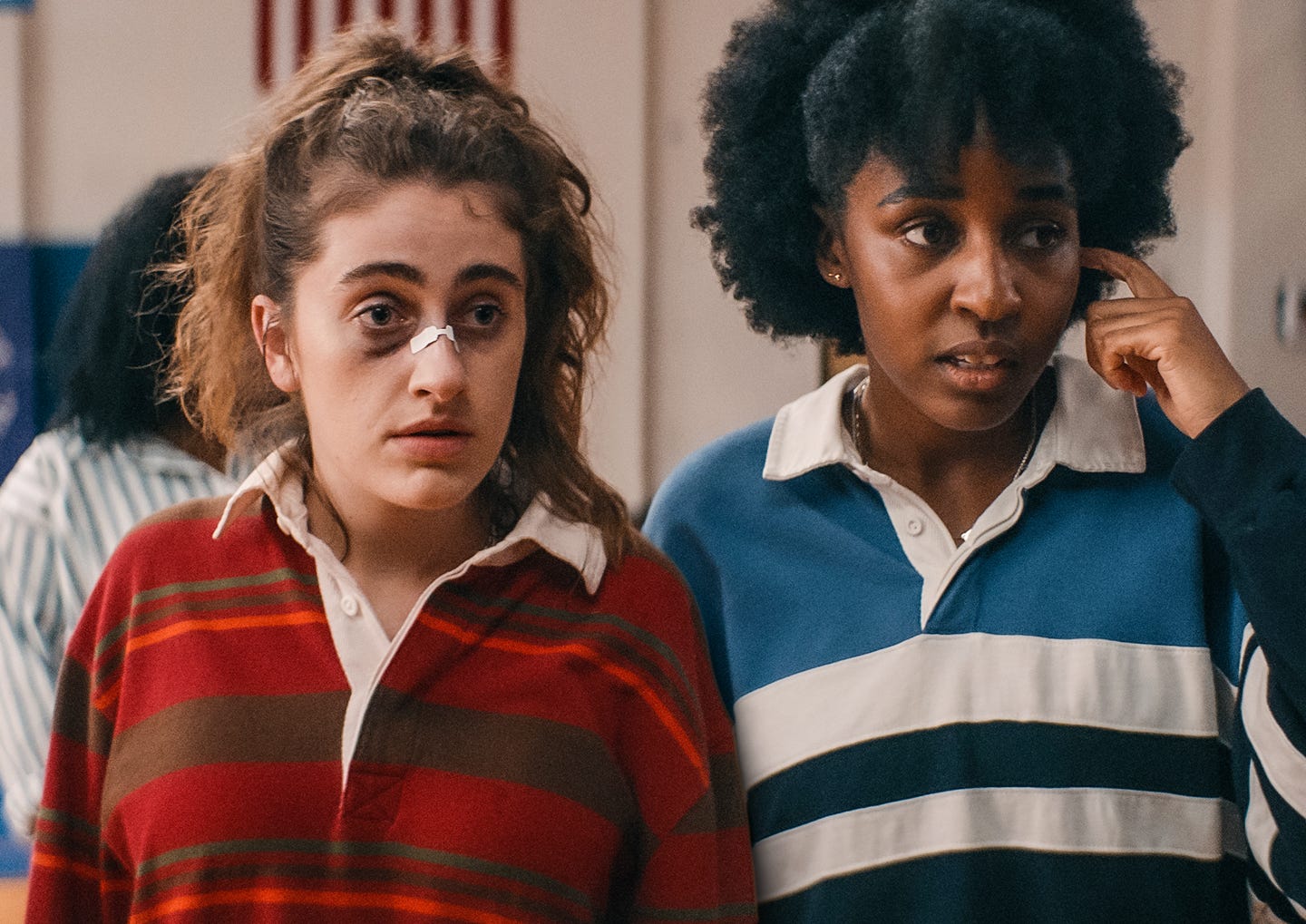
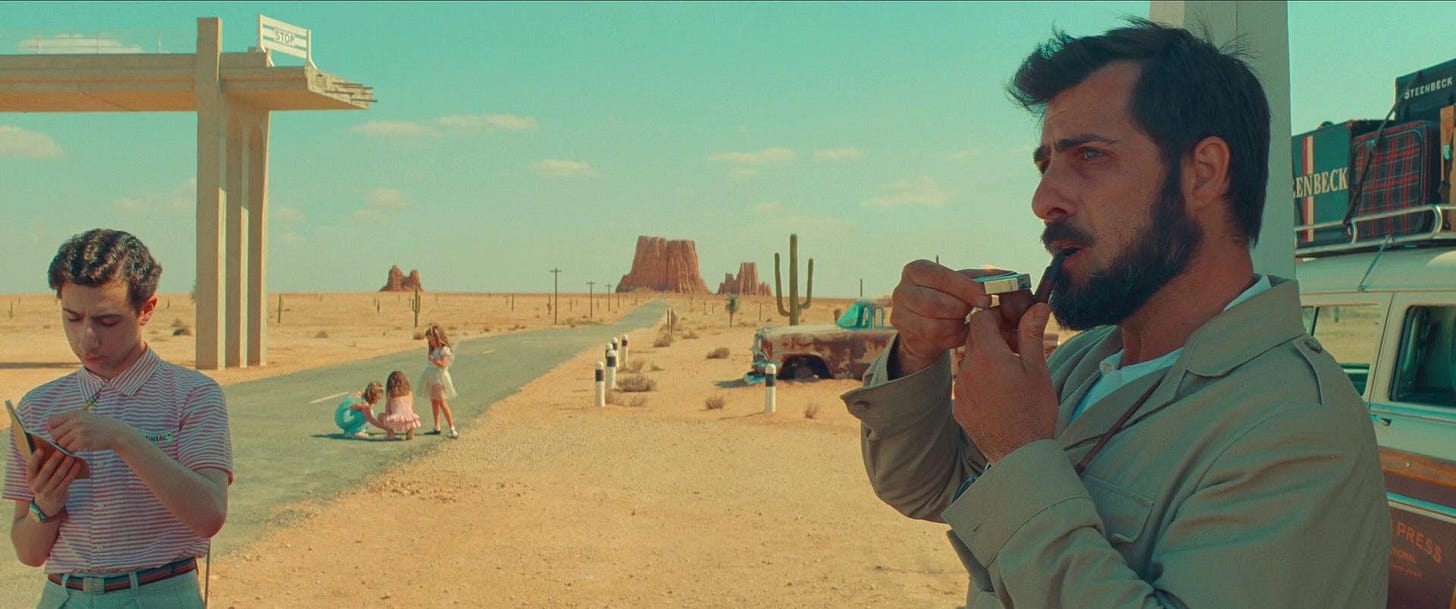
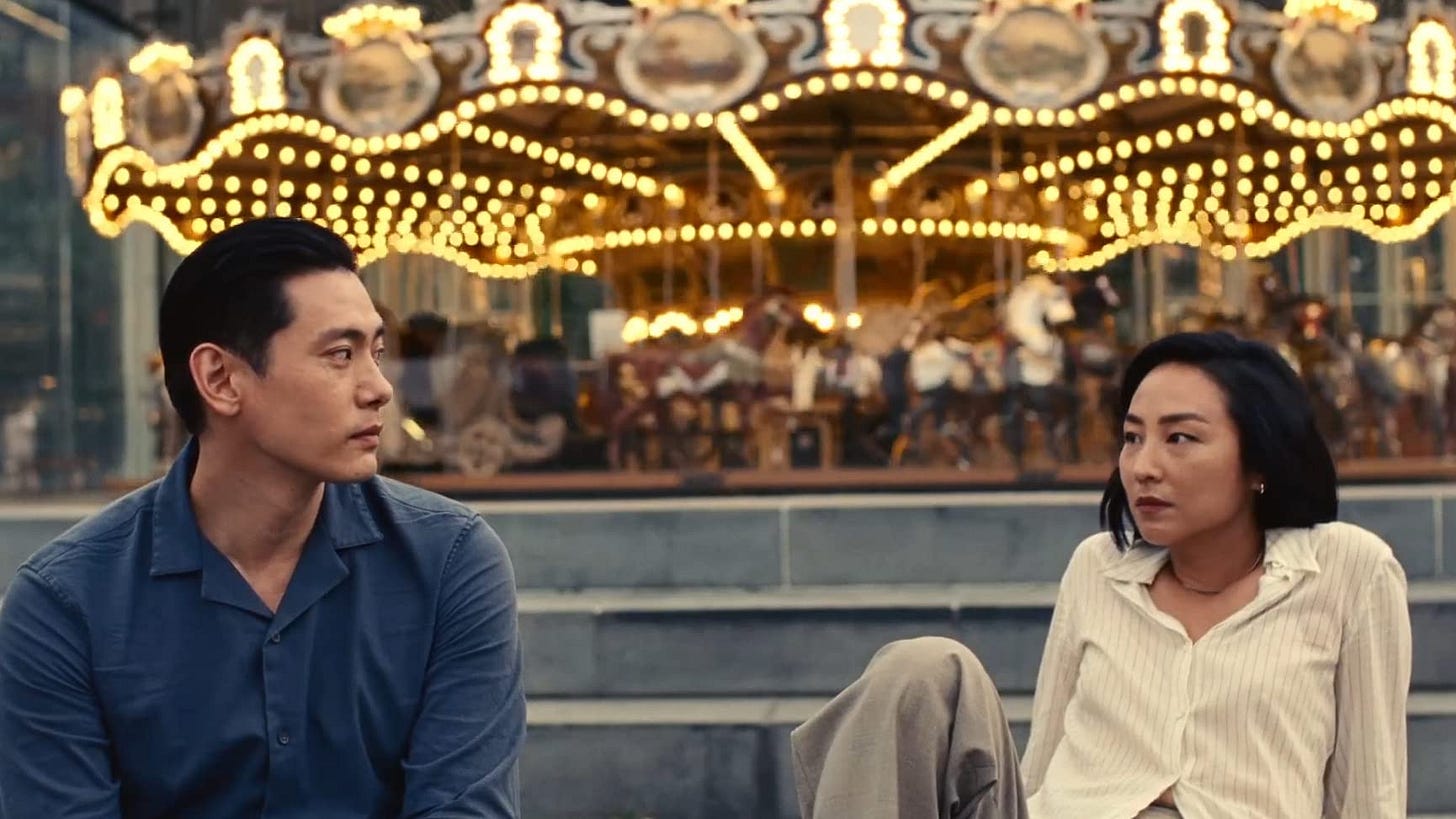
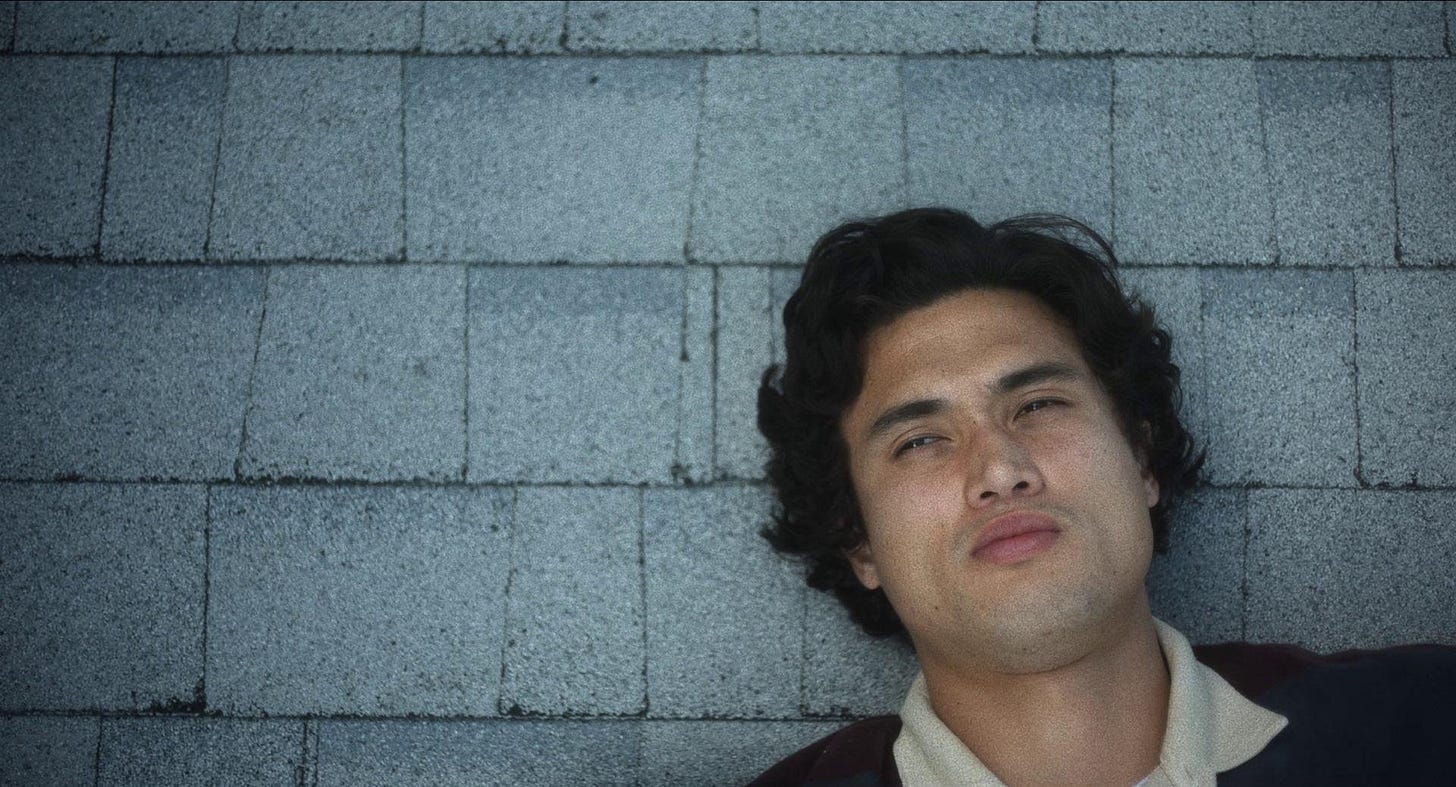
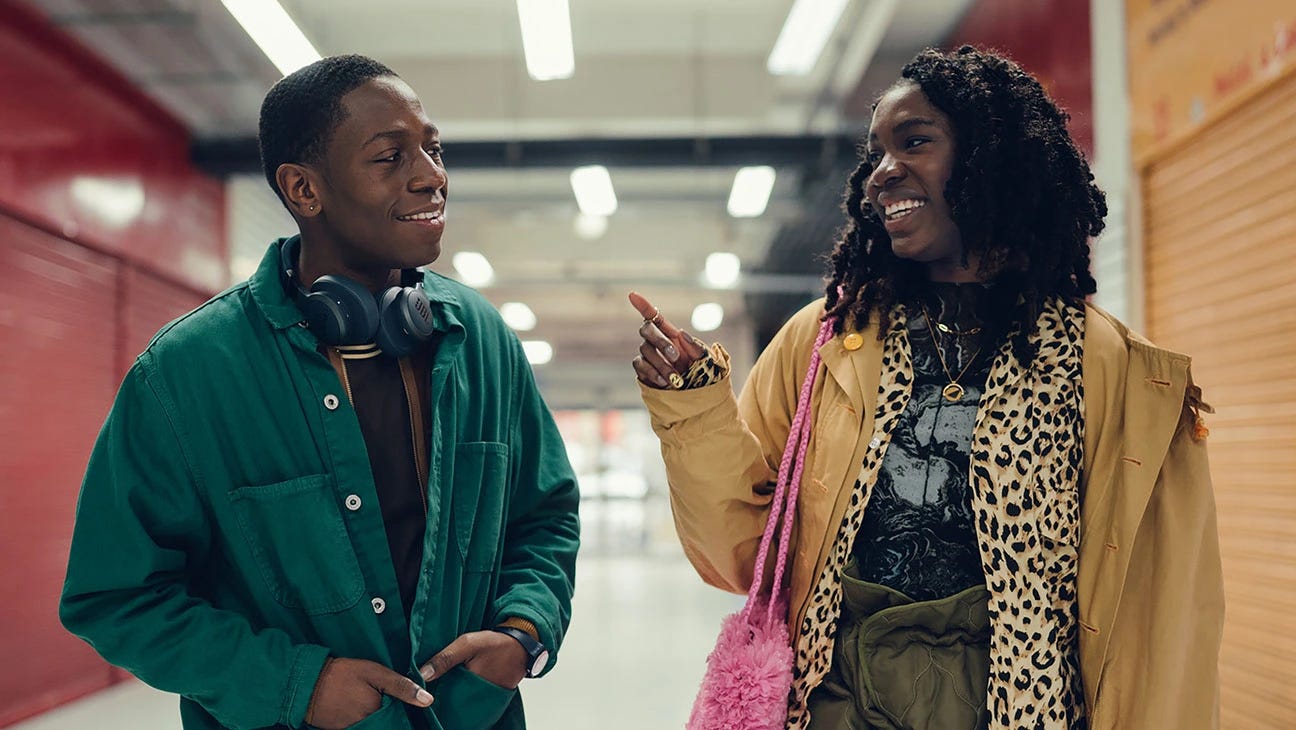
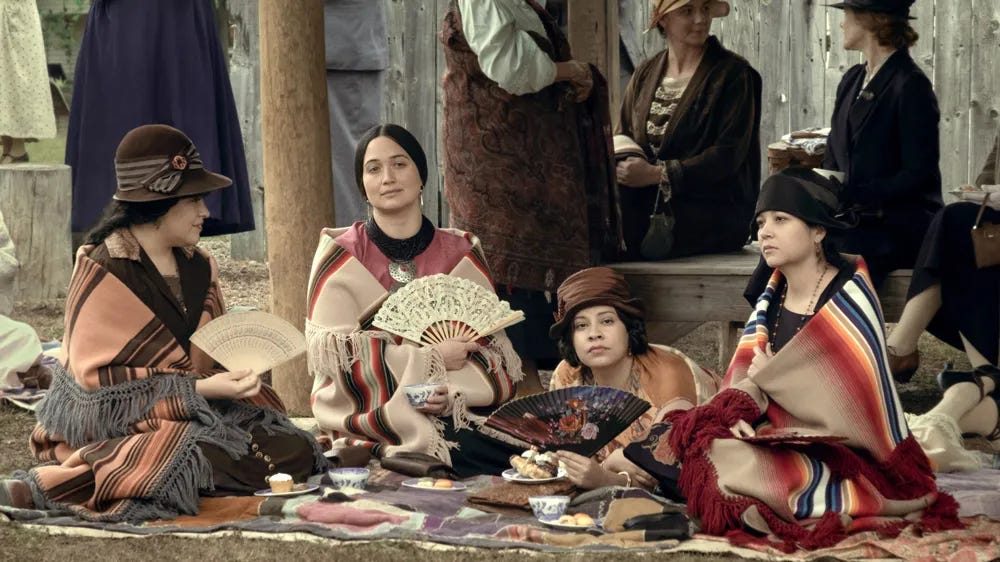
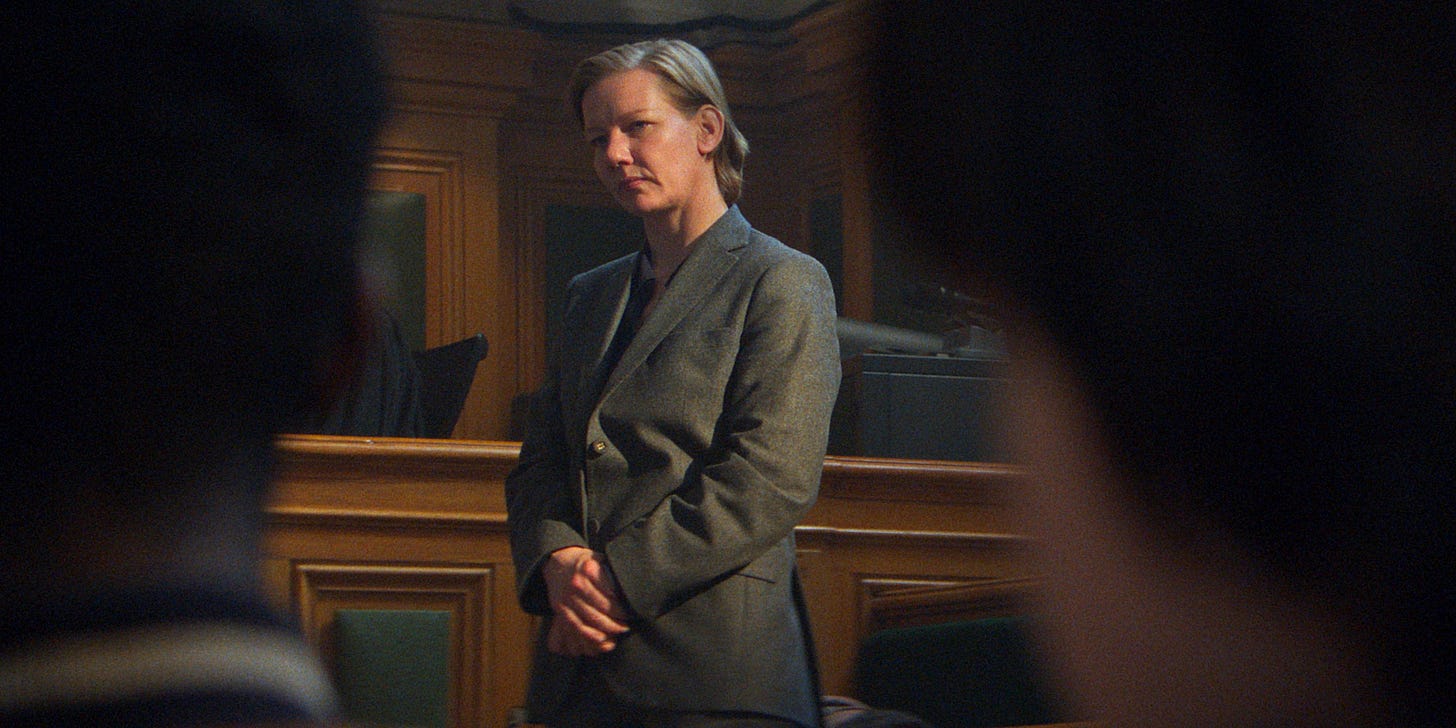
Time is the thing, time is the essential piece of interpretation.